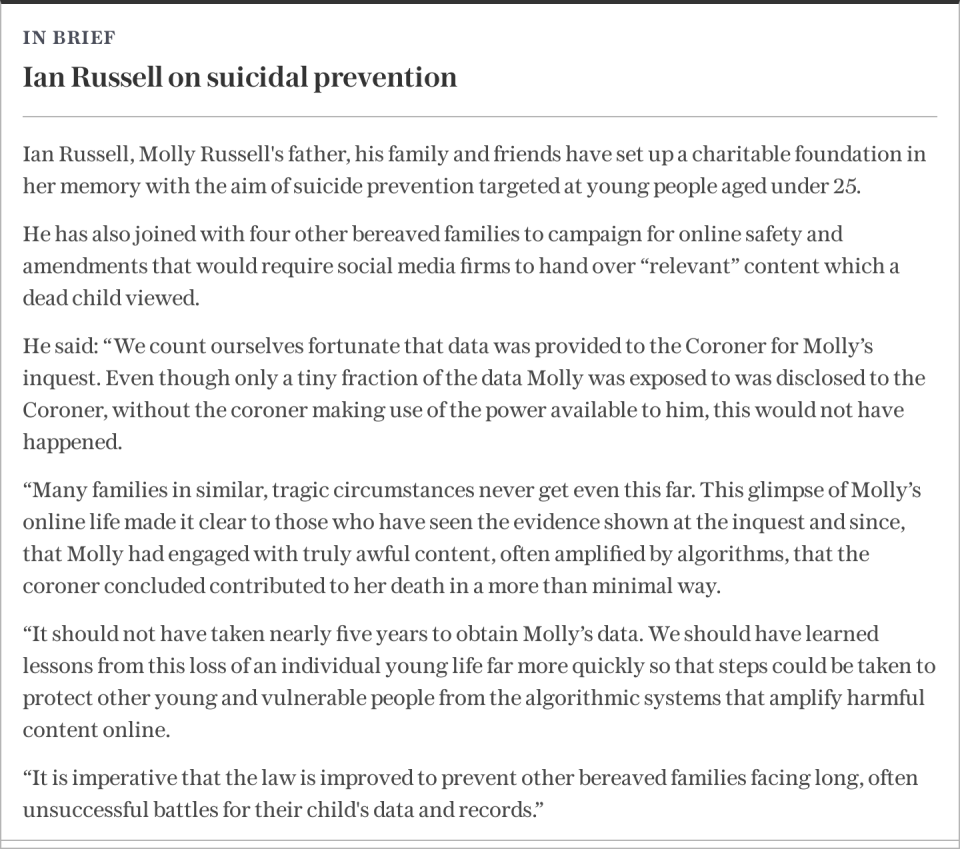Bar children from social media until age 16, say MPs

Children should be barred from social media until they are 16, an all-party committee of MPs has recommended.
The Commons education committee has recommended that the age at which children are allowed on to social media platforms such as Facebook and Instagram should be increased from 13 to 16.
It said the next government should also consider a statutory ban on mobile phones in schools and a total ban on smartphones for under-16s.
Robin Walker, the committee chairman, said: “Excessive screen and smartphone use has a clear negative impact on the mental and physical wellbeing of children and young people.
‘Shocking statistics’
“Our inquiry heard shocking statistics on the extent of the damage being done to under-18s, particularly those who are already extremely vulnerable, such as those in care.
“Digital age of consent checks are not fit for purpose.
“We heard no evidence demonstrating that 13-year-olds understood the ramifications of sharing personal information online and today’s report urges the Government to increase this age to 16.”
The Online Safety Act requires tech firms to ensure they have effective age checks to ensure children under 13 cannot access social media platforms – with fines worth up to 10 per cent of their global turnover if they fail to do so.
However, the committee said age checks were not robust enough and now was the time for a broader debate on the adequacy of the digital age of consent.
“The age of consent in the UK is 16, a child cannot drive until they are 17 and cannot vote in England until they are 18,” it said.
Screen time ‘harmful’
“We have heard no evidence to suggest that 13 is an appropriate age for children to understand the implications of allowing platforms access to their personal data online.
“Yet we know even with the digital age of consent currently formally set at the lowest possible level, it is widely ignored and not effectively enforced. This must change urgently.”
The committee said tougher guidance on mobile phones in schools and how to manage children’s screen time at home was needed to better protect young people.
It argued that screen time was harmful to children’s mental and physical health, and both schools and parents needed clear guidance from the Government on the issue.
Earlier this year, the Department for Education issued non-statutory guidance instructing headteachers on how to ban the use of phones in lessons, breaks and lunch periods as well.
It suggested staff could search pupils and their bags for mobile phones if necessary.
But the committee has said this did not go far enough as it called for a statutory ban.
It said there had been a 52 per cent increase in children’s screen time between 2020 and 2022, with a quarter said to be using their devices in an addictive manner.
The report said it had found that for some, screen time was beginning at as early as six months of age, with one in five children aged between three and four now having their own mobile phone, with almost all children now having one by the time they were 12.
MPs on the committee said that while the Online Safety Act will play a role in keeping children safe from online harms, full protection will not come until the Act is fully implemented in 2026.

Online safety campaigner Ian Russell, whose 14-year-old daughter Molly took her own life after viewing harmful material on social media, said a ban on phones or social media access would “cause more harm than good” and would “punish children for the failures of tech companies to protect them”.
Mr Russell, who set up and is now chairman of the Molly Rose Foundation suicide prevention charity, said: “The next government must follow the evidence and deliver stronger regulation, not policies that would be slower to implement and deliver worse outcomes.
”The quickest and most effective route to protect children’s online safety and wellbeing is to strengthen the Online Safety Act in the next parliament and we call on all parties to commit to this in their manifestos.”

